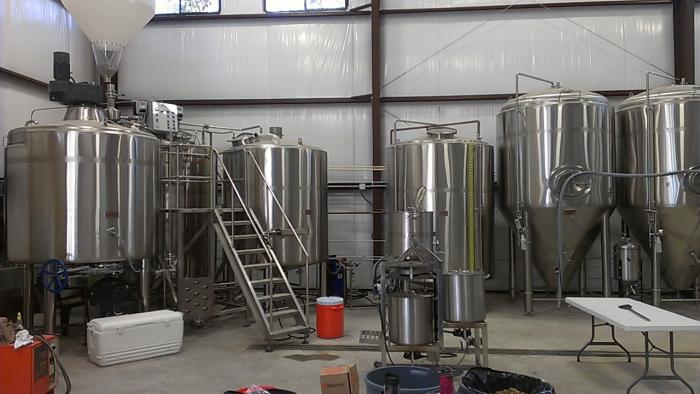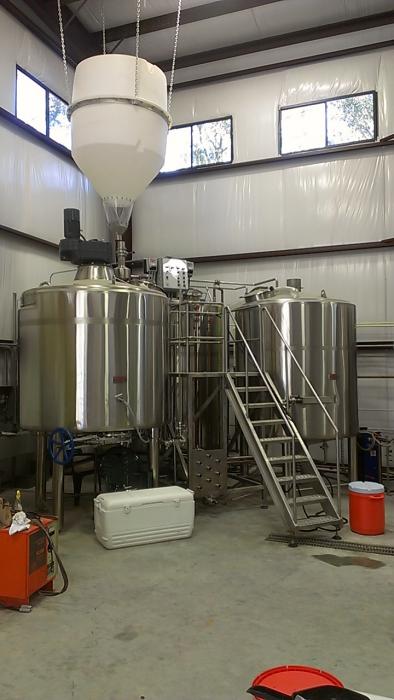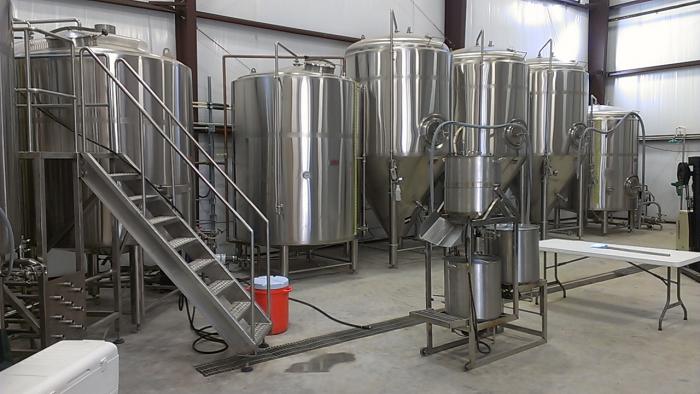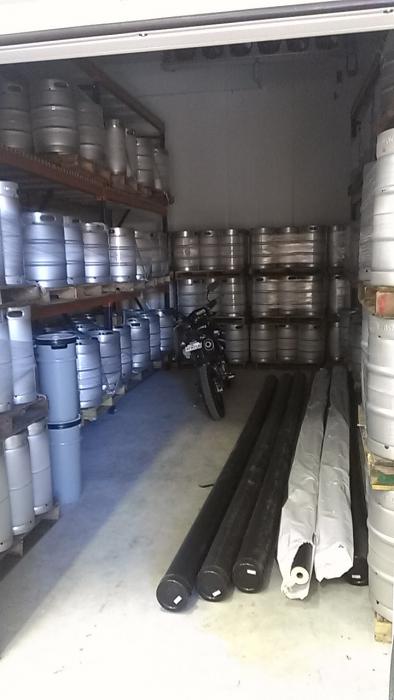Hey all,
I know there's been a few theads like this in the past, so I hope there's still some interest. I wanted to do a post like this several months ago when we were just starting up, but with how crazy things have been lately it just fell on the back burner. We're about 3-4 weeks out from starting production if nothing goes terribly wrong *knocks on wood*.
Our brief story: My brother and I started homebrewing in college about 7-8 years ago. I was an engineering major, so the technical side of brewing always really appealed to me. We were maybe brewing once a month until the beers actually started getting good, we had friends bugging us to brew more, etc. Unfortunately around this time, our jobs took us out of the country and we didn't have a chance to brew for a few years. Like many of you, we had always talked about opening a brewery, but didn't have the cash and/or know anybody willing to invest. After my parents retired, they came to us and suggested we actually do it for real this time. Naturally, we were ecstatic, quit our job and flew back to the states as soon as possible. We were fortunate enough to find another investor along the way, and here we are. I know we're in a very fortuitous situation and are incredibly thankful for having awesome family that is just crazy enough to think we can do this.
I'm realizing I could go on for hours, so I'll try and cut this short and get to answering any questions you guys have about the whole process. I am by no means an expert, but we were forced to learn a **** ton of stuff along the way. I'm always joking w/ some brewer friends that if we ever opened a second brewery, we would save a ton of money and could eliminate many, many of the headaches!
I'll try and get some pics up here in a minute but the basics of our brewhouse/equipment:
- 20 BBL 2-vessel brewhouse (DME)
- 40 BBL Hot/Cold liquor tanks
- (3) 40 BBL Unis
- (1) 40 BBL Brite
Given how helpful/supportive the entire brewing community has been, I'm really looking forward to helping anybody thinking of taking the same path. Ask me anything! There's (almost) no question I won't answer.
If any of yall are interested in following us on Facebook, we'd be very appreciative: www.facebook.com/b52brewing
I know there's been a few theads like this in the past, so I hope there's still some interest. I wanted to do a post like this several months ago when we were just starting up, but with how crazy things have been lately it just fell on the back burner. We're about 3-4 weeks out from starting production if nothing goes terribly wrong *knocks on wood*.
Our brief story: My brother and I started homebrewing in college about 7-8 years ago. I was an engineering major, so the technical side of brewing always really appealed to me. We were maybe brewing once a month until the beers actually started getting good, we had friends bugging us to brew more, etc. Unfortunately around this time, our jobs took us out of the country and we didn't have a chance to brew for a few years. Like many of you, we had always talked about opening a brewery, but didn't have the cash and/or know anybody willing to invest. After my parents retired, they came to us and suggested we actually do it for real this time. Naturally, we were ecstatic, quit our job and flew back to the states as soon as possible. We were fortunate enough to find another investor along the way, and here we are. I know we're in a very fortuitous situation and are incredibly thankful for having awesome family that is just crazy enough to think we can do this.
I'm realizing I could go on for hours, so I'll try and cut this short and get to answering any questions you guys have about the whole process. I am by no means an expert, but we were forced to learn a **** ton of stuff along the way. I'm always joking w/ some brewer friends that if we ever opened a second brewery, we would save a ton of money and could eliminate many, many of the headaches!
I'll try and get some pics up here in a minute but the basics of our brewhouse/equipment:
- 20 BBL 2-vessel brewhouse (DME)
- 40 BBL Hot/Cold liquor tanks
- (3) 40 BBL Unis
- (1) 40 BBL Brite
Given how helpful/supportive the entire brewing community has been, I'm really looking forward to helping anybody thinking of taking the same path. Ask me anything! There's (almost) no question I won't answer.

If any of yall are interested in following us on Facebook, we'd be very appreciative: www.facebook.com/b52brewing









